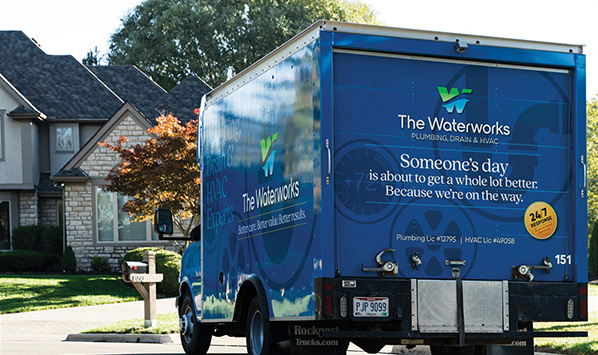
RAIN, RAIN, GO AWAY! PLUMBING TIPS FOR WET WEATHER
Central Ohio always seems to have her fair share of wet weather. Heavy rainfall is not a friend to your plumbing system and can contribute to numerous problems, especially when it comes to your pipes. Both back drafting and flooding are caused by an excessive amount of water backing up your sewer systems, potentially filling your home or business with dangerous chemicals and gallons of water.
Proper care and maintenance can help your plumbing survive intact and remain fully operational. When heavy rains occur, the homeowner or business owner should be prepared to prevent or minimize flooding, backups and the like through effective solutions that identify and/or fix potential risks around your property.
A backdraft occurs when the negative air pressure inside a home or building draws gases and other chemicals into the building from a plumbing drain system that is typically backed up with rainwater. This results in the spreading of unpleasant and sometimes dangerous odors, such as explosive methane gas, throughout your home.
Negative air pressure inside your home is the culprit behind back drafting and accelerated by wet weather events. Common factors that result in negative air pressure within your home include:
- Bathroom and Kitchen Exhaust Fans
- Fireplaces
- Exhaust Ventilation Systems
- Tight Building Construction
Typically, plumbing vents and exhaust systems are sometimes improperly installed too close to a door, soffit vent, window, or bathroom/kitchen vent. Making sure your ventilation and exhaust systems are free of debris and installed properly is critical in eliminating negative air pressure in your home. This is especially crucial when the reentry of sewer gases is significantly worse during rain, sewer, or storm drain flooding.
And then here are backups. Cracked pipes can allow debris to enter pipes, such as mud, sand, or pebbles. This debris can create blockages, which allow water to back up into your home. This can lead to damp basements or underground storage areas. Over time, this water damage can get worse and encourage the growth of mold or even contribute to foundation problems. Resealing a basement can mitigate the problem for now, but the water will continue to back up and accumulate. The best solution is to call a plumber and have the problem fixed.
In addition to causing new issues, heavy rainfall can also aggravate plumbing problems that you may have already had. A thorough inspection is a great way to identify any issues before they become serious, so that minor annoyances don’t become big headaches. Be sure to have your plumbing system inspected periodically so that you can avoid major hassles. While heavy rainfall can cause or contribute to a multitude of household problems, many of them can be prevented or limited with maintenance and upkeep. A simple inspection could help to save your home from costlier and time-consuming damage.
Plumbing emergency? We respond any time!





